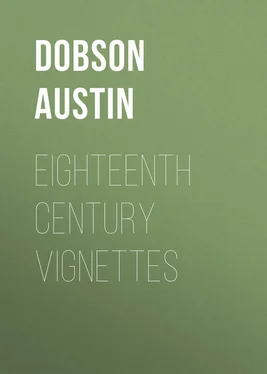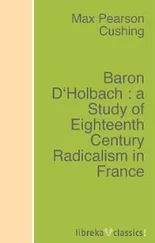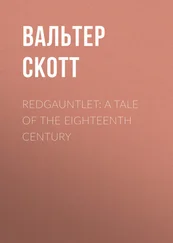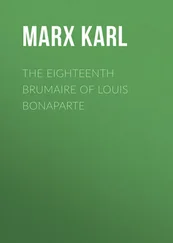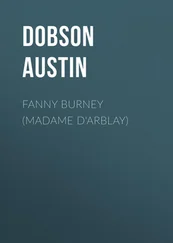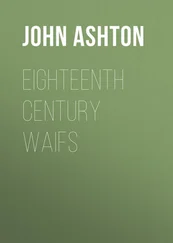Austin Dobson - Eighteenth Century Vignettes
Здесь есть возможность читать онлайн «Austin Dobson - Eighteenth Century Vignettes» — ознакомительный отрывок электронной книги совершенно бесплатно, а после прочтения отрывка купить полную версию. В некоторых случаях можно слушать аудио, скачать через торрент в формате fb2 и присутствует краткое содержание. Жанр: foreign_antique, foreign_prose, на английском языке. Описание произведения, (предисловие) а так же отзывы посетителей доступны на портале библиотеки ЛибКат.
- Название:Eighteenth Century Vignettes
- Автор:
- Жанр:
- Год:неизвестен
- ISBN:нет данных
- Рейтинг книги:5 / 5. Голосов: 1
-
Избранное:Добавить в избранное
- Отзывы:
-
Ваша оценка:
- 100
- 1
- 2
- 3
- 4
- 5
Eighteenth Century Vignettes: краткое содержание, описание и аннотация
Предлагаем к чтению аннотацию, описание, краткое содержание или предисловие (зависит от того, что написал сам автор книги «Eighteenth Century Vignettes»). Если вы не нашли необходимую информацию о книге — напишите в комментариях, мы постараемся отыскать её.
Eighteenth Century Vignettes — читать онлайн ознакомительный отрывок
Ниже представлен текст книги, разбитый по страницам. Система сохранения места последней прочитанной страницы, позволяет с удобством читать онлайн бесплатно книгу «Eighteenth Century Vignettes», без необходимости каждый раз заново искать на чём Вы остановились. Поставьте закладку, и сможете в любой момент перейти на страницу, на которой закончили чтение.
Интервал:
Закладка:
Captain Coram must have been seventy-eight years old when he wrote the above letter, for he had been born, at Lyme Regis in Dorsetshire, as far back as 1668. Of his boyhood nothing is known; but in 1694 he was working as a shipwright at Taunton, Massachusetts. His benevolent instincts seem to have developed early, for in December, 1703, he conveyed to the Taunton authorities some fifty-nine acres of land as the site for a church or schoolhouse.
In the deed of gift he is described as 'of Boston, in New England, sometimes residing in Taunton, in the County of Bristol, Shipwright.' He also gave a library to Taunton; and, from the fact that the Common Prayer Book used in the church of that town was presented to him for the purpose by Mr. Speaker Onslow, must have been successful in enlisting in his good offices the sympathies of others. In course of time he became master of a ship; and, in 1719, a glimpse of his life, of which there are scant details, shows him being plundered and maltreated by wreckers at Cuxhaven, while a passenger on a vessel called the 'Sea Flower,' upon which occasion the affidavit describes him as 'of London, Mariner and Shipwright.' At this date he was engaged in the supply of stores to the navy. He must have prospered fairly in his calling, for he soon afterwards retired from a sea-faring fife in order to live upon his means, and occupy himself entirely with charitable objects. In the Plantations, as they were then called, he took great interest; being notably active as regards the colonization of Georgia and the improvement of the Nova Scotian cod fisheries. Lord Walpole of Wolterton (Horace Walpole's uncle), who had met him, testified warmly to his honesty, his disinterestedness, and his knowledge of his subject. Neither an educated nor a polished man (and not always a judicious one), he was indefatigable in the pursuit of his purpose, and his singleminded philanthropy was beyond the shadow of a doubt. 'His arguments,' said his intimate friend Dr. Brocklesby, 'were nervous, though not nice – founded commonly upon facts, and the consequences that he drew, so closely connected with them, as to need no further proof than a fair explanation. When once he made an impression, he took care it should not wear out; for he enforced it continually by the most pathetic remonstrances. In short, his logic was plain sense; his eloquence, the natural language of the heart.'
His crowning enterprise was the obtaining of a charter for the establishment of the Foundling Hospital. Going to and fro at Rotherhithe, where in his latter days he lived, he was constantly coming upon half-clad infants, 'sometimes alive, sometimes dead, and sometimes dying,' who had been abandoned by their parents to the mercy of the streets; and he determined to devote his energies to the procuring of a public institution in which they might find an asylum. For seventeen years, with an unconquerable tenacity, and in the face of the most obstinate obstruction, apathy, and even contempt, he continued to urge his suit upon the public, being at last rewarded by a Royal charter and the subscription of sufficient funds to commence operations. An estate of fifty-six acres was bought in Lamb's Conduit Fields for £3,500; and the building of the Hospital was begun from the plans of Theodore Jacobsen. Among its early Governors were many contemporary artists who contributed freely to its adornment, thereby, according to the received tradition, sowing the seed of the existing Royal Academy. Handel, too, was one of its noblest benefactors. For several years he regularly superintended an annual performance of the 'Messiah' in the Chapel (an act which produced no less than £7,000 to the institution), and he also presented it with an organ. Having opened informally in 1741 at a house in Hatton Garden, the Governors moved into the new building at the completion of the west wing in 1745. But already their good offices had begun to be abused. Consigning children to the Foundling was too convenient a way of disposing of them; and, even in the Hatton Garden period, the supply had been drawn, not from London alone, but from all parts of the Kingdom. It became a lucrative trade to convey infants from remote country places to the undiscriminating care of the Charity. Once a waggoner brought eight to town, seven of whom were dead when they reached their destination. On another occasion a man with five in baskets got drunk on the road, and three of his charges were suffocated. The inevitable outcome of this was that the Governors speedily discovered they were admitting far more inmates than they could possibly afford to maintain. They accordingly applied to Parliament, who voted them £10,000, but at the same time crippled them with the obligation to receive all comers. A basket was forthwith hung at the gate, with the result that on the first day of its appearance, no less than 117 infants were successively deposited in it. That this extraordinary development of the intentions of the projectors could continue to work satisfactorily was of course impossible, and great mortality ensued.
As time went on, however, a wise restriction prevailed; and the Hospital now exists solely for those unmarried mothers whose previous character has been good, and whose desire to reform is believed to be sincere. Fortunately, long before the era of what one of the accounts calls its 'frightful efflorescence' – an efflorescence which, moreover, could never have occurred under Captain Coram's original conditions – its benevolent founder had been laid to rest in its precincts. After his wife's death he fell into difficulties, and subscriptions were collected for his benefit. When this was broken to the old man – too modest himself to plead his own cause, and too proud to parade his necessity – he made, according to Hawkins, the following memorable answer to Dr. Brocklesby:
'I have not wasted the little wealth of which I was formerly possessed in self-indulgence, or vain expenses, and am not ashamed to confess, that in this my old age I am poor.'
Although the Sunday services are still well attended, Captain Coram's Charity is no longer the 'fashionable morning lounge' it was in the Georgian era, when, we are told, the grounds were crowded daily with brocaded silks, gold-headed canes, and three-cornered hats of the orthodox Egham, Staines and Windsor pattern. 9 9 Egham, Staines, and Windsor form a triangle. According to J. T. Smith, Alderman Boydell was one of the last who wore a hat of this type ('Book for a Rainy Day,' 1861, p. 221).
No members of the Royal Academy now assemble periodically round the historical blue dragon punch-bowl, still religiously preserved, over which Hogarth and Lambert and Highmore and the other pictorial patrons of a place must often have chirruped 'Life a Bubble,' or 'Drink and Agree,' at their annual dinners; neither is there of our day any munificent maestro like Handel to present the institution with a new organ or the original score of an oratorio. But if you enter to the left of Mr. Calder Marshall's statue at the gate in Guildford Street, you shall still find the enclosure dotted with red-coated boys playing at cricket, and with girls in white caps; and in the quiet, unpretentious building itself are many time-honoured relics of its past. Here, for example, is one of Hogarth's contributions to his friend's enterprise, the 'March of the Guards towards Scotland, in the year 1745,' commonly called the 'March to Finchley' – that famous performance for which King George the Second of irate memory said he ought to be 'bicketed,' and which the artist, in a rage, forthwith dedicated to the King of Prusia , with one 's.' A century and a half has passed since it was executed, but it is still in excellent preservation, having of late years, for greater precaution, been placed under glass. 10 10 It was disposed of in 1750 by raffle or lottery. 'Yesterday,' – says the 'General Advertiser' for May 1 in that year, – 'Mr. Hogarth's subscription was closed. 1843 chances being subscrib'd for, Mr Hogarth gave the remaining 107 chances to the Foundling Hospital. At two o'clock the Box was opened, and the fortunate chance was No. 1941, which belongs to the said Hospital; and the same night Mr Hogarth delivered the Picture to the Governors.'
Интервал:
Закладка:
Похожие книги на «Eighteenth Century Vignettes»
Представляем Вашему вниманию похожие книги на «Eighteenth Century Vignettes» списком для выбора. Мы отобрали схожую по названию и смыслу литературу в надежде предоставить читателям больше вариантов отыскать новые, интересные, ещё непрочитанные произведения.
Обсуждение, отзывы о книге «Eighteenth Century Vignettes» и просто собственные мнения читателей. Оставьте ваши комментарии, напишите, что Вы думаете о произведении, его смысле или главных героях. Укажите что конкретно понравилось, а что нет, и почему Вы так считаете.
